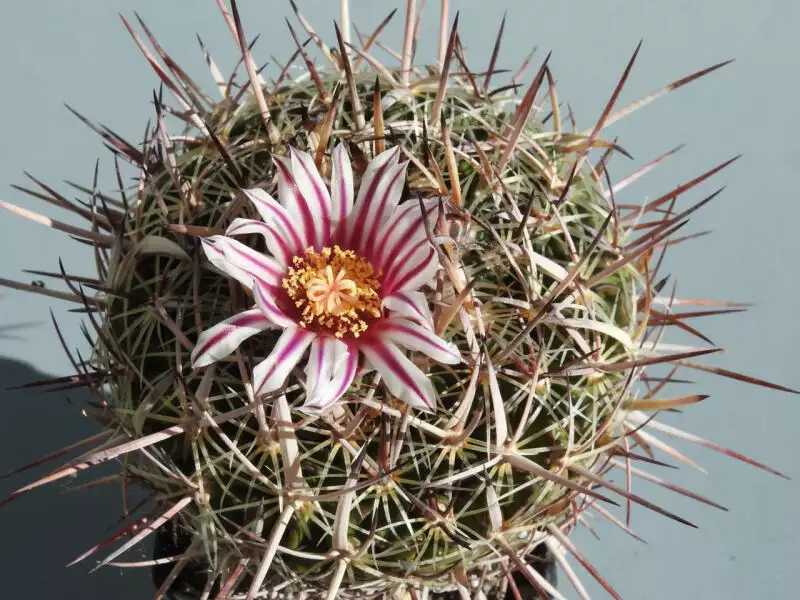Echinofossulocactus zacatecaensis SB18 MG309.4 1/14/18
I like this species very much, but I have an ulterior motive for including it here. In the several sources of information (books) that I've read about this genus, this species is classed as IDENTICAL to E. multicostatus, (previous). Botanical identity needs explaining. This means that if one makes up a botanical key, describing salient visible features, of a given species, then a plant that exhibits the same features described in the key ( the plant "keys out") is botanically identical to the original plant which generated the key. They're identical. Whoever did this analysis for the two species must have been drunk. I don't have the keys for either plant, but I personally can't find a single same property of the two species, unless you want to count something like "globose" or "having spines." I think that even the flowers are different, although it takes being drunk to see much difference in the various species's flowers. I don't mean to engender a lack of respect for authority here, but one must never lose one's ability to laugh when it comes to taxonomy. The matter of "species. etc." will ultimately be decided by molecular biology.
Another story in this area: the species Echinocereus coccineus and Echinocereus triglochidiatus are classed as synonymous in several sources. That is, they key out the same, therefore they are the same species. There is a real problem, however. You can't cross the two. That is, no matter how much you try, you can't make mixed seeds of the two species, in spite of the fact that cacti generally are super promiscuous, making all kinds of hybrids. The expert opinion is - too bad. They, the two, key the same, so they are the same. The scientists point out: the two can't cross. One species has the typical cactus number of 22 chromosomes. The other has 44 chromosomes. Sorry, but it's impossible for two members of the same species to have DIFFERENT NUMBERS OF CHROMOSOMES! The team of David Hunt says they don't care. There are no chromosomes in Karl von Linne's 18th Century taxonomy. They don't therefore exist. No argument based on chromosomes therefore are acceptable to the matter of species. Science? What is science? Sorry. I'm kind of nutty about all this. (29/32)
<<Prev
Index
Next>>

